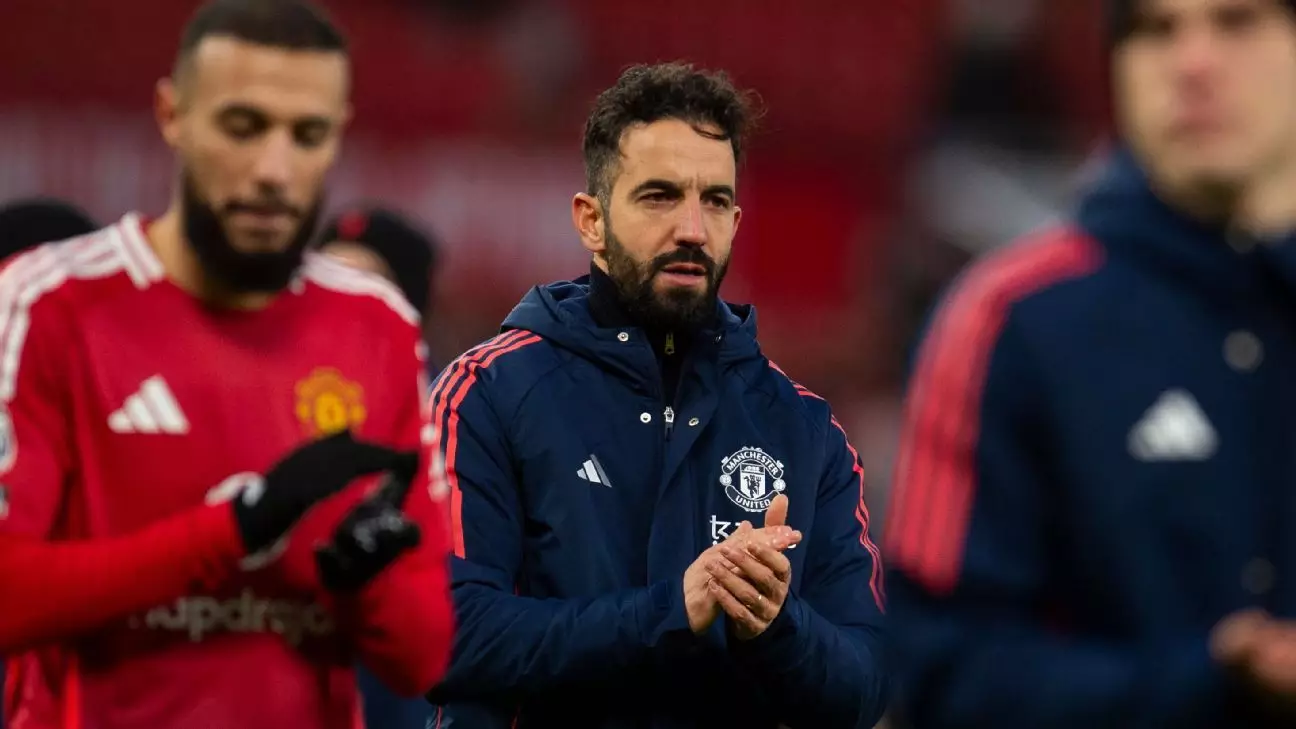Manchester United’s performance has sparked serious concerns, and the new head coach, Ruben Amorim, appears to be feeling the pressure. Despite his previous success with Sporting CP, where he famously went 18 months without a home league defeat, Amorim now finds himself in a precarious situation in the Premier League. The recent back-to-back losses at Old Trafford, first to Nottingham Forest and then to AFC Bournemouth, have raised alarm bells among the supporters and pundits alike. An organization with the stature of Manchester United cannot afford to become accustomed to such disappointments.
The essence of Amorim’s troubles lies in the club’s recent inability to handle pressure situations and convert opportunities into results. After a brief resurgence, highlighted by a momentous win against Manchester City, the team now bears the markings of a gradual decline, encapsulated by ineffective set-pieces and missed chances. With the glaring issues multiplying, the fans and players alike are growing increasingly restless.
The litany of problems for United not only includes the failure to capitalize on scoring opportunities but also a troubling pattern of conceding goals. Set pieces have become a crucial weakness for the squad, with Bournemouth’s opener marking the seventh goal conceded directly from or immediately after a set piece in just six matches. Such statistics cannot be dismissed lightly and warrant immediate attention from Amorim and his coaching staff.
The problem has morphed into a clear trend; the missed clearance from defenders and constant lapses in concentration during set plays are becoming a source of frustration. Amorim acknowledged the team’s challenges, claiming that they are working diligently to improve their set-piece defending, but the reality remains harsh. Until the players can tighten their defensive organization and combat vulnerability during dead-ball situations, the fans should expect ongoing frustrations.
The implications of recent defeats are further magnified by the club’s expectations. A team with Manchester United’s glorious legacy grapples with historical pressures and is held to the highest standards, making every defeat feel particularly impactful. The emotional weight of the fanbase has started to manifest, as evidenced by the audible dissatisfaction following the Bournemouth loss. When away supporters chant, “Manchester United, it’s happened again,” it encapsulates the broader sentiment of despair and disbelief.
Similarly, Amorim’s comment about sensing “anxiety” right from the first whistle speaks volumes. The burden isn’t just his to carry; it permeates the entire club—from players to staff to supporters. The growing unrest in the stands and on the pitch can create a self-fulfilling prophecy where the more you worry about failure, the more likely it becomes a reality.
Amorim must not only address the mental aspects affecting his squad but also re-evaluate the tactical framework he employs. The inability to rebound after going behind in matches has been alarming; whether against Tottenham or Bournemouth, the inability to maintain composure in challenging moments has cost United dearly. The lack of intensity, coupled with a pragmatic approach, requires immediate attention.
Against Bournemouth, even after creating several clear-cut chances, United lacked the clinical edge necessary to transform pressure into voltage, thus propelling the opposition to score swiftly during critical junctures. This pattern observed in multiple matches underlines a significant tactical oversight. Amorim must find a way to encourage a more robust response from his team following setbacks during games, rekindling that reactive spirit crucial for overcoming adversity.
As United prepares for daunting fixtures against Wolverhampton Wanderers and Newcastle United, Amorim’s task of instilling confidence and resilience is paramount. The possibility of landing in the bottom half of the table by Christmas adds to the urgency. While the storm may have arrived, it’s essential for the coaching staff and players to unite and weather it effectively.
Restoring pride to a once-dominant club involves more than tweaking tactics or changing formations; it requires a fully integrated response to the collective anxiety beneath the surface. Time will tell whether Amorim can galvanize his squad and emerge positively from this maelstrom, but one grim truth remains: the storm is not just coming; it is already here.

